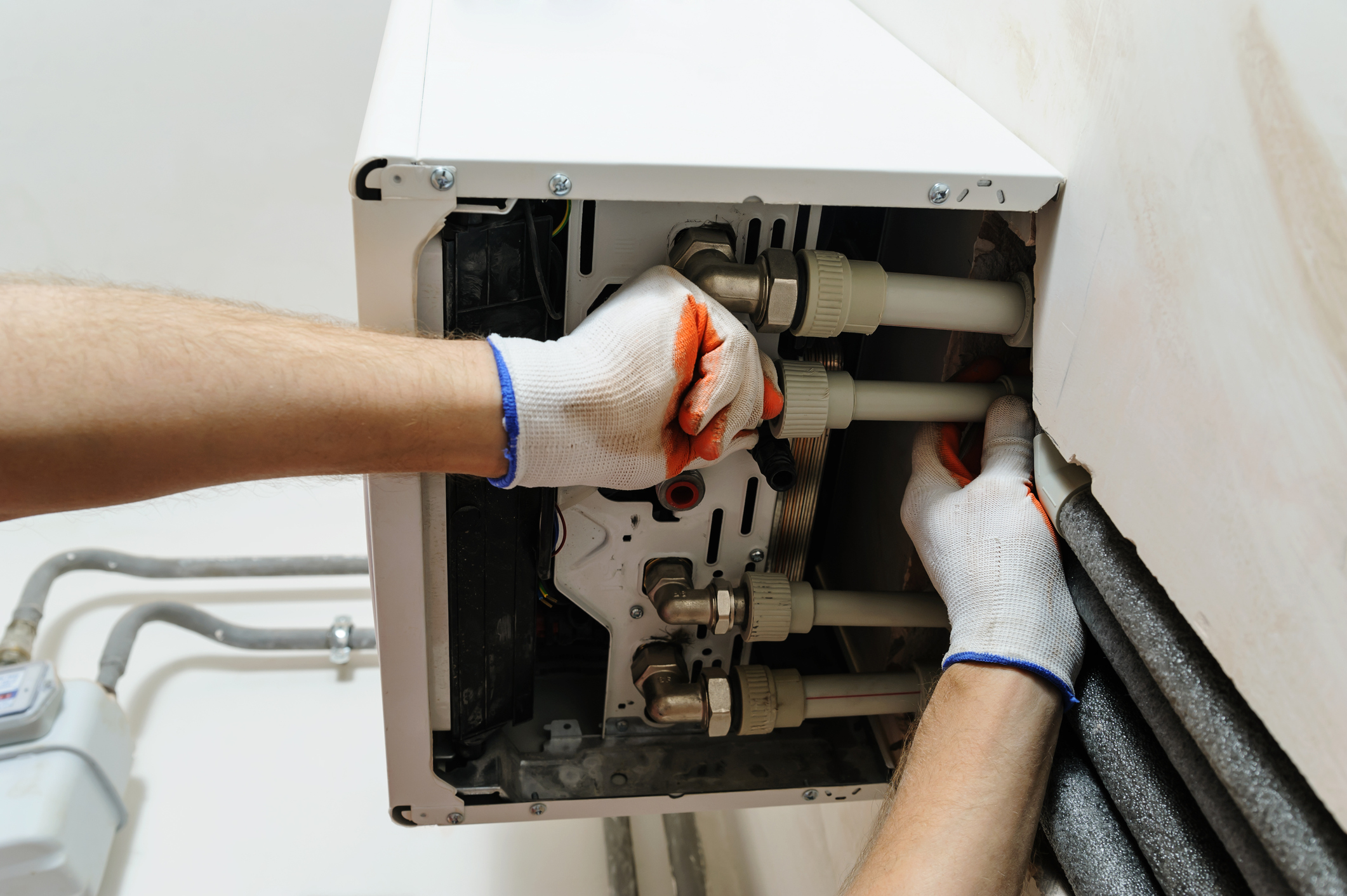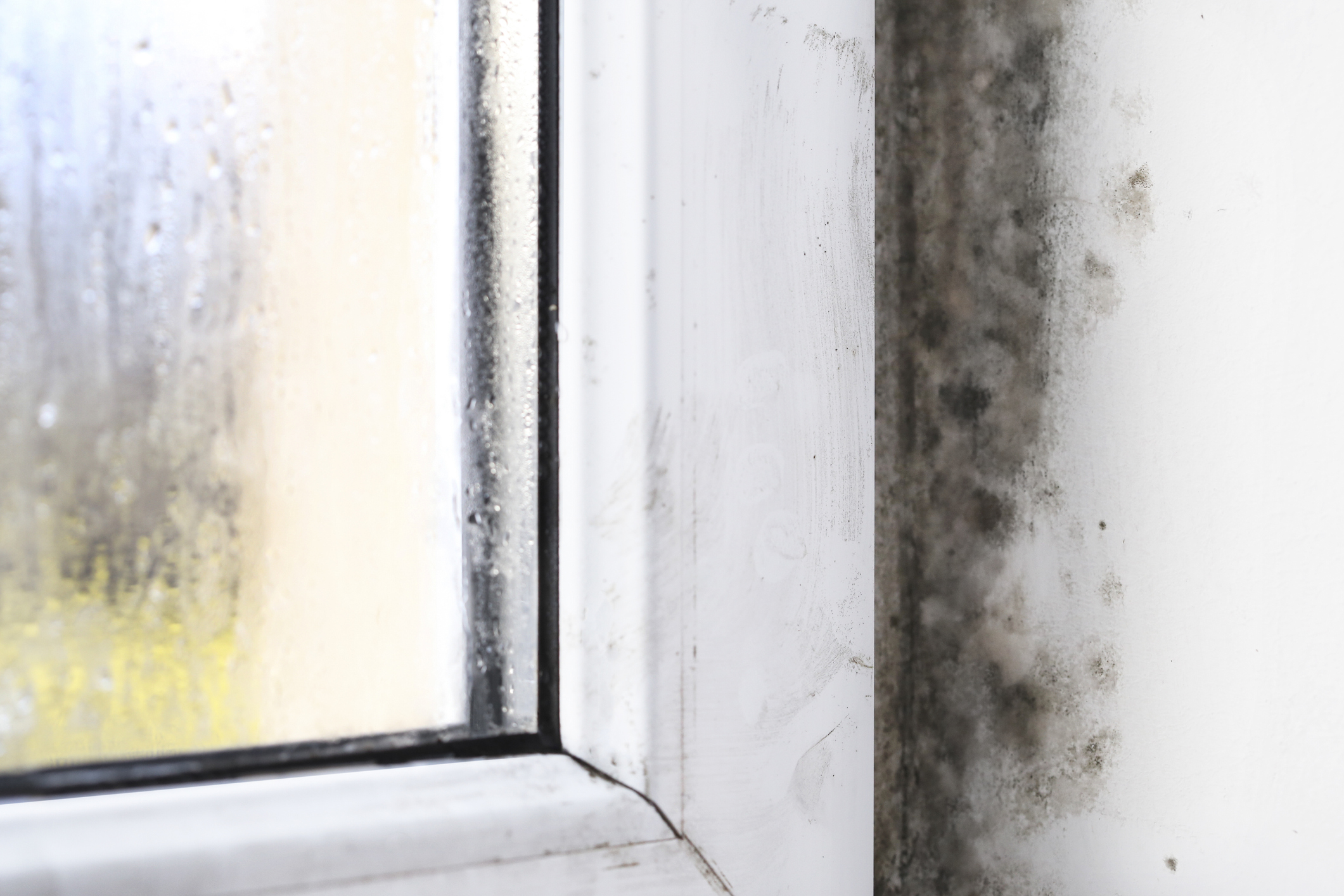Winter support
Stay safe and warm this winter
We want you to feel safe in your home and know we’re here to support you. Here you’ll find information on safety in a home, financial support, and what to do if you spot damp and mould.
How do I report a repair?
There are many ways you can report a repair to us but using our online repairs reporter is the easiest, quickest solution! It takes you through, step-by-step, so you choose the best option for you and your home. Alternatively, you can call us on 0330 333 8382 (24 hours a day).
To find out more about repair categories and timescales, visit our report a repair page by clicking the button below.
Report a repair page

What are the signs of damp and mould?
If you’re not sure if you have damp and mould in your home, below you’ll find a list of early signs:
- If your walls and ceilings are damp to touch and you spot yellow or brown stains appearing, it’s likely you have damp in your home.
- Rising damp can also appear in your home. You can recognize it by tide marks on your walls, white salt deposits on the plaster or damp and stripping wallpaper.
- If your external walls have water marks, salt stains, or moss and growing vegetation, this may also be a sign of damp.
- To stop damp, it’s crucial to look out for condensation. Some of the signs are wet windows and black mould around window frames and walls.
If you’ve spotted damp and mould in your home, it’s important that you report it to us. You can do it by clicking the button below.
Report your damp and mouldSafety in your home
It’s important to us that you feel safe in your home. To prevent common issues, we’ve prepared the information below, so you can feel safe and comfortable in the winter.
-
Electrical safety
Why is electrical safety so important?
If your body receives an electric shock, it can cause serious injury and potential on-going health issues such as burns, heart problems and breathing complications.
This electrical test is a legal requirement and we’re on hand to help you with any electrical questions or concerns you may have, but we also need your help to keep you and your loved ones safe.
Power outage
There may be a rare instance where your power goes out. Follow these steps to keep yourself as safe as possible.
- Check your fuse box. It could be located either inside or outside your home. All the switches should be at the ‘on’ position, if one or more are off, switch them back on. If all of your switches are already in the ‘on’ position, turn the main breaker switch off and then back on again.
- Check with your neighbours if they are experiencing the same issue, there may have been a power outage in your neighbourhood.
- If there has been a power outage in your area, call your energy company and let them know your home is not receiving any power. You will need a charged mobile phone for this. They may already know, but will be able to give you an update on when the power will come back on.
- Unplug most appliances, excluding your fridge. When your power does come back on, there may be a power surge that could damage some of your major appliances if they stay plugged in.
When you experience a power outage, be careful with using candles and tea lights
1. Always make sure they are in a suitable holder and away from anything flammable.
2. Avoid burning several candles close together as this might cause the flame to flare.
3. Put out candles before leaving the room and before you go to bed.
4. Don’t leave a burning candle unattended.
-
Fire safety
It’s important to know how to keep your home fire safe this winter. There are preventative measures you can take to stop a potential fire from occurring:
- Make sure to regularly check if your smoke and Carbon Monoxide alarms are working properly. If you don’t have one, Greater Manchester Fire and Rescue Service may be able to fit them for you as part of a Home Fire Safety Assessment (call 0800 555 815 to find out if you are eligible).
- Avoid smoking indoors in bed or in a chair where you might fall asleep. Remember to stub cigarettes out properly and dispose of them carefully.
- Never dry clothes directly on or in close to a heater or open fire.
- Keeping electrical appliances clean and maintained is not only safer but can keep them energy efficient and prolong their lifespan.
It’s important to stay safe when using portable heaters and different methods when heating your home. Greater Manchester Fire and Rescue Service share a guide on what you can do to keep you safe:
Portable heaters
- Keep at least one meter distance from your heater as sitting too close could set light to your clothes or furniture.
- Make sure your appliance is in good working order and you are familiar with the instructions, so you can use it safely. It’s also best to plug the heaters into a wall socket and not an extension lead.
- Heaters can block your escape route, if there was a fire, so make sure you place them in a safe place
- Remember to unplug the heater before you go to bed or leave the house
- Make sure to only use gas or paraffin heaters in well-ventilated areas, and check if they are suitable for indoor use
Open fires and woodburning stoves
- Always use a fire guard with an open fire to stop flying sparks from hot embers, and make sure the embers are put out before you go to bed.
- Remember to not dry your clothes close to open fire.
- It’s important that you have a CO alarm in all rooms with fuel burning appliances. If you don’t have the alarm, please contact us.
Electric blankets
- If you have an electric blanket, remember to put it flat, rolled up or loosely folded to atop damaging the wires, and unplug before you go to bed, unless it has a thermostat control for safe all-night use.
- Make sure you often check your blanket for wear and tear and avoid using it if wires are visible of poking through the fabric.
- Remember to always follow the instructions.
Candles
- Candles are not an efficient way of heating a room and you should be very careful if using them for lighting. Always make sure candles are in a suitable holder and away from anything flammable. Avoid burning several candles close together as this might cause the flame to flare.
- It’s best to avoid using candles when tired or drinking, in your bedroom or anywhere you might fall asleep.
-
Gas safety
It’s important to keep your home gas safe not just in winter, but all year round. To help you do this, below you’ll find seven simple steps to keep you safe and warm in your home.
Regularly check your gas appliances
We recommend that an annual inspection is carried out every year to check all of your appliances are safe and there are no gas leaks. We will arrange this with you every 12 months. If you have any queries, please get in touch with us.
It’s important for you to keep an eye on your appliances too and look out for any warning signs that they may not be working safely. Some of these include leaks, cracks, clunking noises or black, sooty marks. If you notice any of these it’s a sign to get them checked by an engineer so please reach out to us as soon as possible.
Ensure that engineers are gas safe registered
You should only allow engineers with a Gas Safe Register membership card to work in your home and allowing an unqualified engineer to do the work could put you at risk. If an engineer comes to check your boiler or gas appliances, we recommend checking their ID to ensure they’re fully qualified to carry out checks or do any work.
ForLiving will only ever send Gas Safe Engineers to carry out essential work on your home, but please always ask if you’re unsure – and make sure to check their ID so you know that we’ve sent them, and it’s not a scam.
Know the six signs of carbon monoxide poisoning
Carbon Monoxide is a gas which can make you seriously ill if you breathe it in. It’s colourless and odourless meaning it’s quite hard to tell if it’s around you. It can be produced by your gas appliances if they’re not installed properly, are faulty or poorly maintained. The symptoms of carbon monoxide poisoning are:
- Headaches
- Dizziness
- Nausea
- Breathlessness
- Collapsing
- Loss of consciousness
If you start feeling unwell and believe you’ve been exposed to carbon monoxide, then contact your GP immediately or go to hospital to be checked over.
Get a carbon monoxide alarm fitted
One sure fire way to keep yourself and your family safe from carbon monoxide is to get a carbon monoxide alarm fitted.
Only use appliances for their intended purposes
Not using your gas appliances correctly can be really dangerous, so it’s important to only ever use them for their intended purpose. For example, never use your gas cooker to try and heat the room.
Know what to do in an emergency
If you do smell gas in your home, you must act quickly. You must open all doors and windows to help with ventilation, turn off your gas emergency valve control and contact National Emergency Gas immediately on 800 111 999. They will be able to guide you and advise what to do next.
Money support
We want to make sure you feel supported and know what help is available. Below you’ll find information on government support schemes, and other support you may need to help you get through the cold months.
Please note that you will not need to apply for the support provided by the government. If you’re eligible, you’ll be paid automatically in the same way you usually get your benefits or tax credits. This includes if you’re found to be eligible at a later date.
-
Warm Home Discount Scheme
You can get £150 as part of the Warm Home Discount Payment, which will reopen again in October 2023.The money is not paid to you – it’s a one-off discount on your electricity bill, between October 2023 and March 2024. You may be able to get the discount on your gas bill instead if your supplier provides you with both gas and electricity and you’re eligible. If you’re unsure, please contact your supplier. If you want to find out more, visit the government website.
-
Cold Weather Payment
You may get a Cold Weather Payment if you’re getting certain benefits or Support for Mortgage Interest. You’ll get a payment if the average temperature in your area is recorded as, or forecast to be, zero degrees celcius or below over 7 consecutive days. You’ll get £25 for each 7 day period of very cold weather between 1 November and 31 March. The scheme will start on 1 November 2023, and you’ll be able to check if your area is due a payment in November 2023. You can find more information on the GOV website.
-
Cost of Living Payment
You may be entitled to up to three Cost of Living Payments of £301, £300 and £299 if you get any of the following benefits or tax credits on certain dates. You can find out more details on the GOV website.
You may be entitled to a Disability Cost of Living Payment of £150 if you’re getting any of any of the following benefits:
- Attendance Allowance
- Constant Attendance Allowance
- Disability Living Allowance for adults
- Disability Living Allowance for children
- Personal Independence Payment
- Armed Forces Independence Payment
- War Pension Mobility Supplement
-
Winter Fuel Payment
If you were born before 25 September 1957 you could get between £250 and £600 to help you pay your heating bills. This is known as a ‘Winter Fuel Payment’. The amount you get includes a ‘Pensioner Cost of Living Payment’. This is between £150 and £300. You’ll get this extra amount in winter 2023 to 2024. This is in addition to any other Cost of Living Payments you get with your benefit or tax credits. For more information, visit the website here.
-
Pension Credit
Pension Credit gives you extra money to help with your living costs if you’re over State Pension age and on a low income. Pension Credit can also help with housing costs such as ground rent or service charges. You might get extra help if you’re a carer, severely disabled, or responsible for a child or young person. Click here to find out more.
